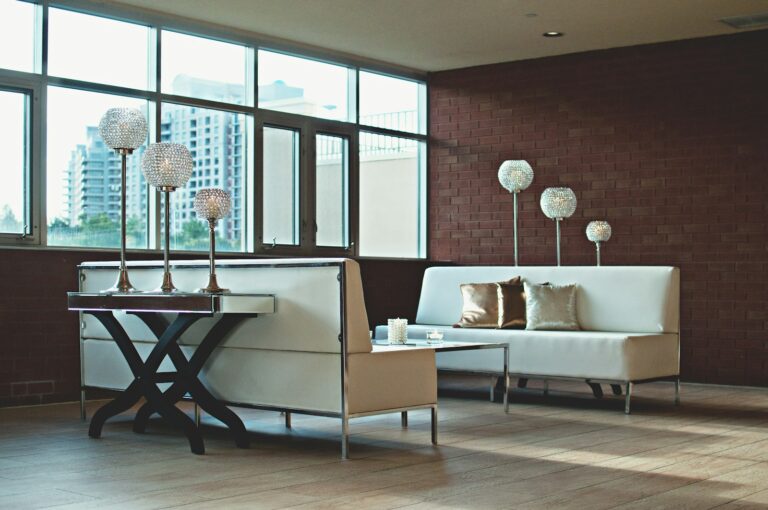Choosing the right flooring for your home is an important decision, impacting both the aesthetics and functionality of your space. Two popular options, hardwood floors and tile, offer distinct advantages and disadvantages. Determining which is best for your needs requires considering factors like lifestyle, budget, and personal preferences.
Hardwood Floors
Hardwood flooring exudes a classic elegance, adding warmth and sophistication to any room. Its natural beauty and unique grain patterns create a distinctive visual appeal that enhances the overall ambiance of a home. Beyond aesthetics, hardwood offers several practical benefits.
Durability and Longevity
Hardwood flooring is known for its durability and longevity. With proper maintenance, it can last for decades, outperforming many other flooring options. Its resistance to wear and tear makes it ideal for high-traffic areas like living rooms, hallways, and kitchens.
Versatility and Customization
Hardwood flooring comes in a wide variety of species, each offering distinct characteristics in terms of color, grain patterns, and hardness. This versatility allows homeowners to customize their floors to perfectly match their design preferences and home decor.
Increased Home Value
Investing in hardwood floors can significantly increase the value of your home. Potential buyers often view hardwood as a premium flooring option, making your property more attractive and potentially fetching a higher selling price.
Maintenance and Refinishing
Hardwood floors require regular maintenance to retain their beauty and durability. This includes sweeping, vacuuming, and occasional mopping. Over time, scratches and wear may appear, necessitating refinishing to restore the floor’s original luster.
Tile Flooring
Tile flooring offers a practical and stylish alternative to hardwood. Its durability, ease of maintenance, and versatility make it a popular choice for various settings, including kitchens, bathrooms, and entryways.
Durability and Resistance to Moisture
Tile flooring is exceptionally durable, resistant to scratches, dents, and moisture. This makes it ideal for areas prone to spills or high foot traffic, such as kitchens and bathrooms. Its moisture-resistant properties also make it suitable for outdoor spaces.
Variety of Styles and Designs
Tile flooring boasts an incredible range of styles and designs. From classic ceramic tiles to modern porcelain and natural stone, there’s a tile option to complement any aesthetic. This vast selection allows homeowners to create unique and personalized spaces.
Easy Maintenance and Cleaning
Tile flooring is remarkably easy to maintain and clean. Its smooth, non-porous surface repels dirt and stains, making it a practical choice for busy households. Regular sweeping and occasional mopping are sufficient to keep tile floors looking their best.
Cost Considerations
While tile flooring offers durability and versatility, it can be more expensive than hardwood, particularly for high-end materials like natural stone. Installation costs can also vary depending on the complexity of the design and the size of the area.
Weighing the Pros and Cons: Choosing the Right Flooring for You
Ultimately, the decision between hardwood and tile flooring comes down to personal preferences, lifestyle, and budget.
Hardwood Floors: A Timeless Investment
Hardwood floors offer a classic elegance, durability, and potential to increase home value. However, they require regular maintenance and can be more expensive than tile.
Tile Flooring: Practical and Versatile
Tile flooring is durable, low-maintenance, and available in various styles and designs. It’s an excellent choice for areas prone to moisture and high traffic, but it may not offer the same level of warmth and elegance as hardwood.
Conclusion
Choosing between hardwood floors and tile is a personal decision that depends on your individual needs and priorities. Consider factors like budget, desired aesthetic, lifestyle, and maintenance preferences to determine the best flooring option for your home.
Ultimately, both hardwood and tile can enhance the beauty and functionality of your space, providing a lasting investment in your home.
Frequently Asked Questions
1. What about the environmental impact of each flooring option?
Both hardwood and tile flooring have environmental considerations. Hardwood is a renewable resource, but harvesting practices and transportation can impact the environment. Tile flooring often uses manufactured materials and may have a higher embodied carbon footprint. It’s crucial to research sustainable options and manufacturers committed to environmentally friendly practices.
2. How do hardwood and tile floors fare in terms of allergy-friendliness?
Hardwood floors are generally considered more allergy-friendly than tile, as they trap less dust and allergens. However, the type of wood, finish, and cleaning products used can influence its allergy-friendliness. Tile can be more challenging to clean thoroughly, potentially trapping dust and allergens in grout lines.
3. Can hardwood floors be installed in areas with high moisture, like bathrooms?
While engineered hardwood can handle some moisture, it’s not ideal for areas with constant exposure to water like bathrooms. Tile is the superior choice for bathrooms and other wet areas due to its inherent moisture resistance and ease of cleaning.
4. What about the soundproofing properties of hardwood and tile flooring?
Hardwood floors can be noisy, especially in multi-level homes. Tile flooring also tends to be less soundproof, especially when it’s laid over concrete. Underlayment and rugs can help mitigate noise levels with both flooring types.
5. Are there cost-effective alternatives to traditional hardwood and tile?
Yes! There are more budget-friendly options. Laminate flooring mimics the look of hardwood but costs less. Luxury vinyl tile (LVT) offers the durability and design versatility of tile but at a lower price point.


